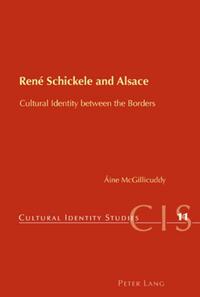
Born into a German-French bilingual environment, the once renowned German-language author René Schickele (1883-1940) grew up in the Alsace region − today located in eastern France − during its annexation to the German Empire when links to French culture were frowned upon. In the aftermath of the First World War the situation was reversed when Alsace was reclaimed by the French Republic. In both these phases of its troubled history, Schickele insisted on the importance of Alsace’s right to retain its double cultural heritage between the borders of its powerful rival neighbours and on its potential, as mediator between France and Germany, to promote peace in Europe. These issues are addressed in a critical discussion of a range of Schickele’s works. His controversial wartime drama Hans im Schnakenloch affords a wry but penetrating insight into issues of identity in Alsace under German rule up to the war, while his socio-political essays and a novel trilogy, Das Erbe am Rhein, were written against the backdrop of the malaise alsacien and life under French rule. The historical background to the work is examined in detail as it is intimately bound up with the issues of cultural identity that Schickele explores in his writings.